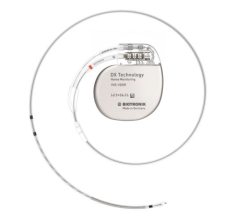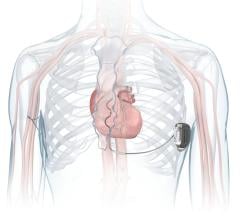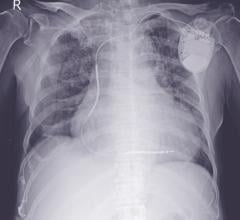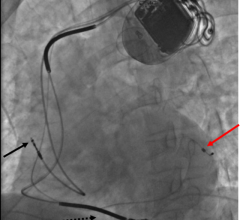June 29, 2007 - A potential sudden cardiac arrest prevented by an implantable cardioverter defibrillator (ICD) provides the first scientific evidence that someone may experience instantaneous death near the anniversary date of a past traumatic event, reports a study published in the July 2007 edition of HeartRhythm.
The study involved a 50-year-old patient who, while attending her sister-in-law’s funeral, experienced a sudden, potentially life-threatening heart rhythm disturbance (ventricular tachycardia) almost exactly one week after her father’s unexpected death. The patient’s potential sudden cardiac arrest was prevented by her ICD, which recorded the time and date of the incident. The sister-in-law, upon learning by telephone about the death of the patient’s father, died instantly from sudden cardiac arrest. She did not have an ICD.
“Stories about seemingly healthy people dropping dead after receiving tragic news have been described for many years, but this is the first published report that documents one plausible cause-and-effect relationship,” said Michael O. Sweeney, MD, lead author, Associate Professor of Medicine at Harvard Medical School and a Clinical Electrophysiologist at Brigham and Women’s Hospital in Boston. “It is conceivable that the memory of the patient’s father’s unexpected death one week earlier, combined with the anguish of witnessing her sister-in-law’s burial, were physically manifested as the irregular heartbeat that would have killed her had it not been for her ICD. Similarly, it is reasonable to implicate the emotional shock of the patient’s father’s death in the sister-in-law’s sudden cardiac arrest."
The term “anniversary reaction” refers to the physical or psychological symptoms that people may experience on or about the anniversary date of past traumatic events. People are rarely conscious of the connection between the triggering trauma and resulting manifestations.
The patient’s ICD was implanted on Oct. 12, 2004 for primary prevention of sudden cardiac arrest. She experienced a single episode of monomorphic ventricular tachycardia on March 20, 2005, at 11:46 AM, approximately 6 days and 23 hours after her father died.
“Physicians should not discount the possibility that mental stress may aggravate underlying heart rhythm disturbances in susceptible individuals, and in some instances this may result in sudden cardiac arrest,” noted Dr. Sweeney.
For more information: www.hrsonline.org


 January 13, 2026
January 13, 2026 









